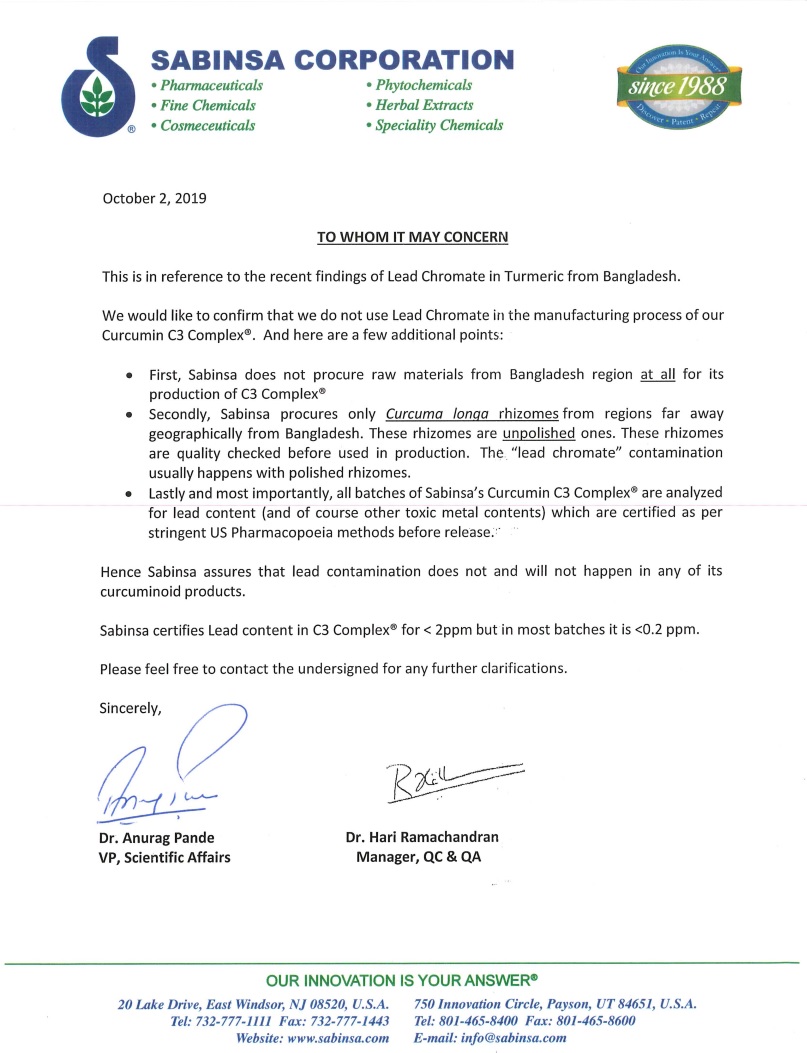Fruit of Garcinia cambogia, the natural source of (-) hydroxycitric acid
Citrin®: A revolutionary approach to weight management
Citrin® is Sabinsa’s trademarked name for an unique calcium salt of (-) hydroxycitric acid ((-) HCA), an effective weight loss phytonutrient which Sabinsa Corporation was the first to standardize. To enable versatile applications of (-) hydroxycitric acid in functional food products and include the essential health benefits of the mineral potassium, Sabinsa later developed (-) hydroxycitric acid in a soluble form, as the potassium salt Citrin®K. Sabinsa Corporation introduced three new soluble salt forms of (-) hydroxycitric acid in 1998. Citrin®Mg combines the weight loss effects of (-) hydroxycitric acid with the health benefits of magnesium, an essential mineral nutrient for metabolic functions and energy release mechanisms in the body. To provide essential mineral combinations nested in a weight control product, Sabinsa introduced Citrin®Mg/K and Citrin® Ca/K. All these multi-functional products have potential applications as effective nutritional supplements, particularly in sports nutrition.
Citrin®: A patented water soluble product
Sabinsa Corporation was assigned a patent (U.S. Patent# 5,783,603), for Citrin®K in July 1998. The patent titled "Potassium hydroxycitrate for the suppression of appetite and induction of weight loss" provides methods of appetite suppression, inhibiting cytoplasmic citrate lyase, and increasing fat metabolism in obese subjects, using the potassium salt of hydroxycitric acid from Garcinia fruit.
Citrin®K is a water soluble product, available as a standardized powdered extract or a standardized liquid.
Garcinia cambogia: In the news in November 1998

The November 11, 1998 issue of JAMA published an article, based on a single study in which the authors stated that their observations "do not support a role as currently prescribed for the widely used herb G.cambogia as a facilitator of weight loss."
Aside from this strong statement, which opposes the positive results reported in several earlier clinical studies, the design of the trial indicates that the authors took little advantage of previously reported experience involving (-) HCA. In their own pre-clinical studies (FASEB J. 1998) they report a prerequisite that suggests for (-) HCA to effectively inhibit fat formation and reduce body weight it should be administrated with a simple carbohydrate rich (lipogenic) diet. The study in question coadministered (-) HCA with a high fiber diet.
In this case, results may be compromised by a well-recognized property of high-fiber diets- questionable absorption of many nutrients and micronutrients. This issue becomes critical with HCA, since its reported efficacy in inhibiting the intracellular enzyme ATP citrate lyase depends entirely on the presence of HCA inside the target cell.
In view of the above discussed shortcomings of the study, the statement on (-) HCA’s lack of efficacy is unsupported, particularly in the absence of proof that HCA was absorbed from the gastrointestinal tract. Another significant aspect is the fact that HCA enables weight management through appetite control, reduced food intake and inhibition of fat synthesis.
Clinical Studies with Citrin®
Citrin® has been proven to be a safe and effective weight loss supplement which suppresses the appetite and inhibits fat synthesis. Several studies have been conducted on Citrin® as well as supplements containing Citrin® in order to evaluate its efficiency and tolerability.
Conte3 pioneered weight loss studies. In 1993 he tested the non-prescription weight loss alternative Lipodex-2 (containing HCA and a Chromium supplement) on 50 obese (15 - 45% overweight) volunteers. As in other studies, the subjects were instructed to eat a low-fat, smart substitution diet and to exercise. Significant weight loss was observed for those patients taking Lipodex-2 in addition to appetite suppression and increased energy levels. The average weight loss per person in the 8 weeks was 11.14 lbs for the Lipodex-2 subjects compared to 4.2 lbs for those in the placebo group. Consumers of Lipodex-2 remarked about the ease and convenience of the supplement. Conte has said that the supplement is very useful in a maintenance program as well as in preventing additional weight gain.
In a 4 week study conducted by Katts and coworkers1, 200 subjects were assigned to either a "placebo" or "active" group. In addition to food, the "active" group consumed the dietary supplement Brindall Trim which contains a daily total of 1,500 mg of Citrin®, 1,200 mg of L-carnitine, and 600 mcg of chromium (as picolinate). No adverse effects were reported for subjects taking Brindall Trim, and it facilitated the loss of body fat (average loss of body fat: -1.40 lbs "placebo" group, -2.84 lbs "active" group) when combined with a low-fat diet and increased physical activity.
Thom2 conducted a randomized, placebo-controlled, double-blind study on 60 patients for a period of 8 weeks. Patients were on a low-fat diet, exercised, and either took Citrisan® (HCA supplied as Citrin®) or an identical placebo three times a day (1320 mg/day). Weight reductions were significant. The mean weight reduction in the HCA group (30 patients) was 14.11 lbs compared to 8.37 lbs for the placebo group. Approximately 87% of weight loss in the HCA group was due to fat loss compared to 80% for the placebo group. Statistically significant reductions in favor of the HCA group were obtained for blood pressure, total cholesterol, and hip and waist circumferences. Appetite scores were significantly reduced for the HCA group, but not for the placebo group.
An 8 week, open-field, physician controlled, clinical evaluation5 of Citrin® was conducted with ambulatory patients ranging in age from 20 to 64. The body weight loss during the 8 week test period was significant and independent of either gender or age. The mean weight values for women and men decreased after 4 weeks and 8 weeks as shown in Figure 1.
 Diminished appetite perception and elevated vitality were observed for both men and women; however, women had significantly higher levels for both characteristics. Significant reductions were seen in blood levels of triglycerides for the entire sample population. However, the very low density lipoproteins (VLDL) and low density lipoproteins (LDL) were significantly lowered in the population according to age. VLDL was lowered in participants ranging in age from 51-64, while LDL was lowered in 20 to 40 year olds. The high density lipoproteins (HDL) were significantly increased in all groups combined after 8 weeks of Citrin® from a mean value of 47.4 mg/dL to a mean value of 50.4 mg/dL. Blood glucose levels decreased for all but not significantly. The risk of coronary heart disease (CHD) significantly declined in men after the 8 week treatment. It also declined in women but not significantly. In terms of age, the CHD risk declined in all age groups but significantly for those ages 51-64. A trend in lowering systolic blood pressure was observed for the entire sample population.
Diminished appetite perception and elevated vitality were observed for both men and women; however, women had significantly higher levels for both characteristics. Significant reductions were seen in blood levels of triglycerides for the entire sample population. However, the very low density lipoproteins (VLDL) and low density lipoproteins (LDL) were significantly lowered in the population according to age. VLDL was lowered in participants ranging in age from 51-64, while LDL was lowered in 20 to 40 year olds. The high density lipoproteins (HDL) were significantly increased in all groups combined after 8 weeks of Citrin® from a mean value of 47.4 mg/dL to a mean value of 50.4 mg/dL. Blood glucose levels decreased for all but not significantly. The risk of coronary heart disease (CHD) significantly declined in men after the 8 week treatment. It also declined in women but not significantly. In terms of age, the CHD risk declined in all age groups but significantly for those ages 51-64. A trend in lowering systolic blood pressure was observed for the entire sample population.
A long-term study (8 to 36 months) assessing some of the same characteristics was also performed5. The long term use of Citrin® resulted in significant weight reduction from a mean value of 157.8 lbs to 145.5 lbs. The blood biochemistry results showed improvement in lipid profiles, although these changes were not statistically significant, as shown in Table 1.

- Katts, G.R., Pullin, D., Parker, L.K., Keith, P.L., and Keith, S. Abstract/Poster: Merida, Yucatan, Mexico, March 4, 1995.
- Thom, E. Abstract/Poster: 7th European Congress on Obesity in Barcelona, May 14-17, May 1996.
- Conte, A.A. The Bariatrician, Summer 1993: 17-19.
- Conte, A.A. Alternative and Complementary Therapies, June/July 1995: 212-215.
- Badmaev, V. and Majeed, M. Sabinsa Study.
Citrin® Glucose and Glycogen
Glucose is the fuel of choice for the brain and also an essential energy source for the muscles. Biologically speaking, securing an adequate supply of glucose is a basic requirement for our daily performance, if not for our existence.
Because blood glucose levels are so critical, stores of readily available glucose are found in organs which have particularly high energy requirements. Nutrition is the key in supplying carbohydrates and other nutrients from which glucose can be manufactured. Nutrition also supplies natural compounds which can improve glucose metabolism by decreasing the amount of body lipids while increasing glycogen storage in the liver.
Hydroxycitric acid (HCA) is a well researched natural compound that is known to improve glucose metabolism. This compound may also help in replenishing glycogen levels, particularly in disease conditions like diabetes, or conditions depleting glycogen stores, as in the course of intense training of athletes. From literature data, it is known that HCA can inhibit citrate lyase, a key enzyme required for fatty acid production. This enzyme may possibly divert glucose from being converted to fatty acids and instead convert it into its storage form - glycogen.
In experiments carried out with laboratory animals at the Department of Food Sciences and Technology, Kyoto University, Faculty of Agriculture, Japan, rodents were fed with 5 mg of HCA for three days. Th. results suggested that mice fed with HCA as compared to the control animals benefited with higher content of glycogen in the muscles. In the endurance test, those mice that were fed with HCA could swim significantly longer than the control group.
In a clinical weight-loss study involving Citrin® , individuals taking 500 mg three times a day for four weeks, reported a significant increase in physical energy levels as compared to their energy levels at the onset of the study. These subjective observations of increased energy levels should be further studied since they may reflect, or be a result of, increased levels of glycogen stores in the body.
Additionally, two recent studies involving Sabinsa’s newest (-)HCA salt have provided encouraging results. The importance of HCA availability in the cytosol of a target cell to inhibit lipid synthesis was recently confirmed in an in vitro study by researchers at Northwestern University Medical School in an in vivo experimental model of urinary stone prevention. In this study, HCA administered orally to rats increased citraturia, which can be the result of inhibition of ATP citrate lyase. The compound used in this study was Citrin® Mg/K.

(Watson, J.A. and Lowenstein, J.M., (1970) J. Biol. Chem. 245, 22: 5993-6002)
Role of (-) Hydroxycitric acid in fat Metabolism SUMMARY: BIOLOGICAL EFFECTS OF (-) HCA
- (-) HCA helps normalize elevated lipid levels
- (-) HCA helps in appetite regulation
- (-)HCA stimulates gluconeogenesis, thereby increasing the metabolic rate
- (-) HCA spares the loss of protein in lean tissues
Citrin® was the first commercially produced ingredient to effectively administer the well documented benefits of (-) HCA to the nutritional supplement industry. Since its introduction in 1991, it has achieved worldwide recognition as the Garcinia cambogia extract that revolutionized the use of (-) HCA for weight management. Its popularity and curiosity continue to be topics of intense interest and study in academic and scientific circles. There seems to be no diminishing society’s quest to find safe, effective, long-term use nutrients that aid in the fulfillment of an individual’s desire to secure better health. With that in mind, the family of Citrin® products presently available from Sabinsa clearly offer ample (-) HCA options to satisfy a portion of this ongoing crusade. We encourage you to contact us about this, or any of the other fine products offered by Sabinsa.








